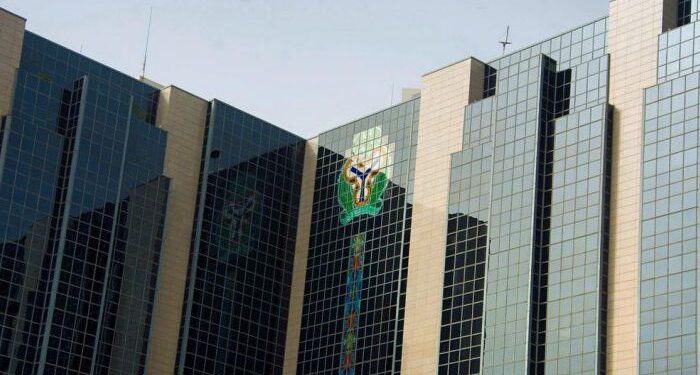Nigerian banks are bracing for fresh challenges as the Central Bank of Nigeria (CBN) rolled out new liquidity requirements that are already reshaping the financial landscape. The apex bank, in its latest policy move, raised the Cash Reserve Ratio on certain public sector deposits to an unprecedented 75 percent while lowering the reserve ratio on private sector deposits from 50 to 45 percent. This twin action has stirred mixed reactions across the banking industry, with analysts warning of tighter margins and stiffer competition for deposits in the months ahead.
The CBN’s decision marks a strategic shift aimed at reducing the financial system’s reliance on government funds. For years, many commercial banks leaned heavily on deposits from ministries, departments, agencies, and state governments to maintain liquidity and earn steady income. With three-quarters of those funds now sterilized, banks are left with a much smaller pool of resources to deploy into loans and investments. This effectively locks away trillions of naira that institutions previously used to fund operations. By contrast, the slight relief granted on private deposits is designed to encourage banks to focus more on attracting funds from households and businesses, which the CBN sees as a more sustainable base for long-term financial stability.

The measures arrived alongside a modest reduction in the Monetary Policy Rate, which was cut by 50 basis points to 27 percent. At first glance, this suggested a loosening stance intended to ease borrowing costs for the real economy. However, the simultaneous tightening of liquidity rules creates a balancing act that is proving complex for banks. On one hand, cheaper borrowing should spur lending to businesses and households, but on the other, the sterilization of government deposits limits the extent to which banks can take advantage of that environment. The conflicting signals have left market participants debating whether the net effect will be expansionary or restrictive.
Financial analysts caution that banks with large exposures to government funds will be the hardest hit in the short term. Such institutions may face shrinking interest income as a significant chunk of their cheap deposits is rendered unusable. In response, these banks are expected to intensify competition for retail and corporate deposits, potentially raising the cost of funds across the sector. Smaller lenders, which already struggle to compete with larger players, may find themselves under further strain. This could lead to a round of strategic repositioning, with some banks focusing on niche markets while others pursue aggressive customer acquisition campaigns.
Beyond profitability, there are concerns about the impact on credit growth. While the CBN’s easing of the private sector reserve ratio theoretically frees up resources for lending, banks might remain cautious. The uncertainty surrounding liquidity management and the need to maintain stronger buffers could make institutions more conservative in extending credit, particularly to riskier segments such as small and medium-sized enterprises. This raises questions about whether the new rules will achieve their goal of supporting economic growth while keeping inflation in check.
The central bank’s move also reflects its broader effort to maintain macroeconomic stability. Nigeria has seen inflation ease gradually over the past few months, offering room for a rate cut. At the same time, the authorities are wary of excess liquidity that could stoke renewed price pressures or destabilize the exchange rate. By ring-fencing government deposits, the CBN is attempting to prevent sudden surges of cash into the system that could undermine its inflation-fighting efforts. Market watchers say the approach underscores the delicate balance between growth support and financial discipline that the regulator is trying to achieve.
For banks, the path forward will require sharper focus on efficiency and innovation. Many are expected to roll out more attractive savings products, digital banking solutions, and non-interest deposit schemes to broaden their funding base. Cost management will also be critical, as lenders seek to protect profitability in the face of narrower margins. Risk management systems are likely to be strengthened, with institutions placing greater emphasis on liquidity stress testing and contingency planning. These adjustments will be vital if banks are to weather the challenges presented by the new regulatory environment.
The coming months will reveal how effectively banks adapt. Some analysts believe the changes could ultimately make the system healthier by forcing institutions to diversify their funding sources and deepen their engagement with the private sector. Others warn that the immediate squeeze on liquidity might slow credit expansion and weigh on economic recovery at a time when businesses are in need of affordable financing. The real test will be how quickly banks recalibrate their operations and how well the CBN manages the unintended consequences of its policy mix.
Investors, both local and foreign, will be watching closely. Lower interest rates might reduce the attractiveness of Nigerian assets, but greater financial discipline could bolster confidence if inflation remains on a downward path and exchange rates stay relatively stable. The credibility of the central bank’s enforcement will also be key. Any ambiguity in implementation could rattle markets and undermine the policy’s objectives.
As it stands, Nigeria’s banking sector faces a new era defined by tighter liquidity, heightened competition for deposits, and the need for strategic agility. Whether this leads to stronger, more resilient banks or simply squeezes profitability without significant gains in credit growth will depend on how institutions respond and how the regulator fine-tunes its approach. For now, the pressure is firmly on banks to adapt swiftly to the realities of a policy landscape that seeks to balance growth, stability, and inflation control in Africa’s largest economy.
Support InfoStride News' Credible Journalism: Only credible journalism can guarantee a fair, accountable and transparent society, including democracy and government. It involves a lot of efforts and money. We need your support. Click here to Donate
